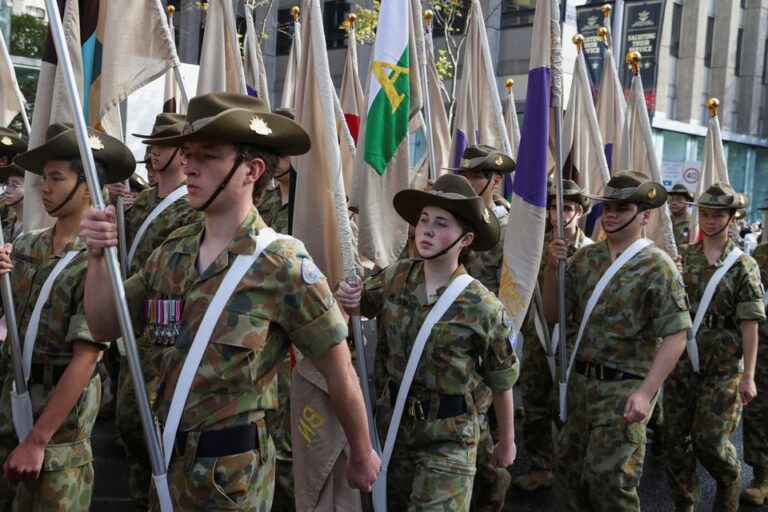
SYDNEY, (Reuters) – Thousands of people gathered across Australia and New Zealand on Monday to honour military personnel on Anzac Day, after the COVID-19 pandemic cancelled or limited public gatherings and commemorations in the past two years.
Anzac Day originally commemorated a bloody battle on the Gallipoli peninsula in Turkey during World War One. On April 25, 1915, thousands of troops from the Australian and New Zealand Army Corps (ANZAC) were among a larger Allied force that landed on the narrow beaches of the Gallipoli peninsula, in an ill-fated campaign that would claim more than 130,000 lives.
Today, Anzac Day honours all Australian and New Zealand troops from all conflicts.
Australian Prime Minister Scott Morrison, who faces an election next month, attended the dawn service in the Northern Territory city of Darwin, where be paid tribute to the people of Ukraine who are fighting a Russian invasion.
“On this particular day, as we honour those who fought for our liberty and freedom, we stand with the people of Ukraine who do the same thing at this very moment,” Morrison said.
Across the Tasman sea New Zealand Prime Minister Jacinda Ardern said Russia’s invasion of Ukraine shows peace cannot be taken for granted.
“In New Zealand we may feel a great distance from this conflict, but we are all inextricably linked to what it represents,” Ardern said in her Anzac Day address in Auckland.
The Ukraine flag was flown during an Anzac Day dawn service at Auckland Museum.
Crowds gathered at dawn services across Australia and New Zealand on Monday without any pandemic restrictions.
“The last few years have been really hard with COVID-19,” navy veteran Ray James, said at the dawn service in Sydney’s Martin Place Cenotaph, ABC News reported.
“I’m really delighted to see the enormous crowds that have shown up today.”






